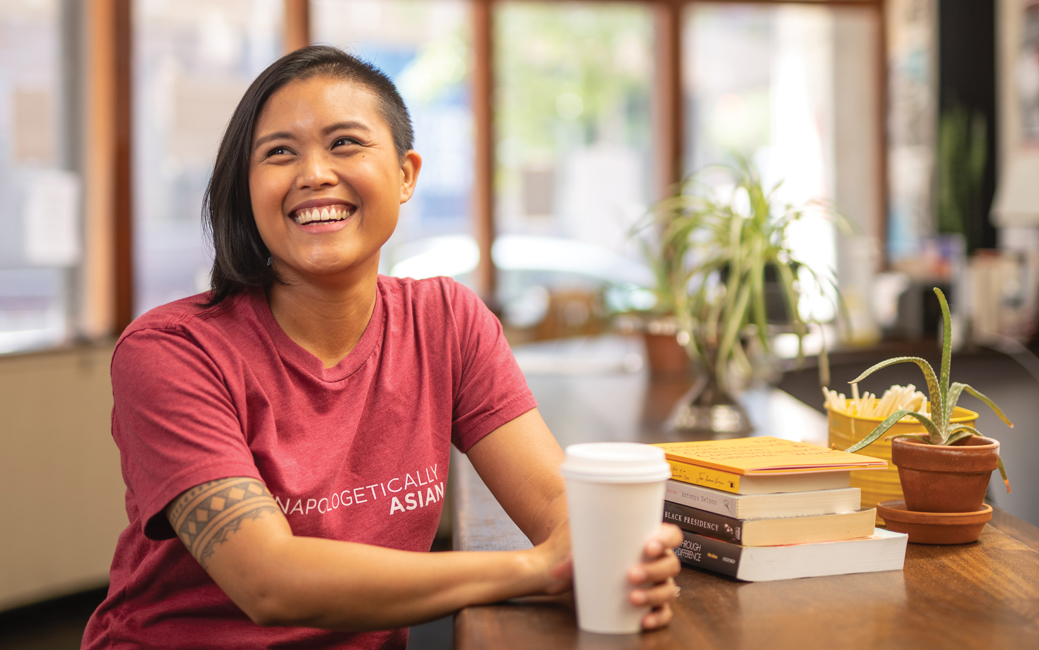Coffee With...Cori Dioquino ’07
We sat down with the founder and co-executive director of the Asian Pasifika Arts Collective to talk about Asian representation in the arts, arts integration and her plans for the collective.

Q: What did you do right after college?
A: I took a break from acting and got into teaching and doing arts integration. I did some traveling, had a little bit of a life crisis when I went back home to the Philippines and was like, “Oh, I don’t belong here either. I spent my entire life waiting to go back home, and now I’m home, and I don’t fit in here.” I started to question a lot of things and to realize, “Hey, I didn’t have X, Y and Z opportunities as a kid. I didn’t have people telling me that I could be this if I wanted to be this.” When I realized I could be the representation for kids that I didn’t have, that’s when I started saying, “How can I make my work mean something, not just for me?”
Q: How do you define representation?
A: Diversity is like checking off boxes. Representation is, are you honoring our experiences? Are you telling our stories honestly and sincerely? Are you letting us tell our stories? One of the conflicts that we have often, especially in theater, is that it’s people telling Asian stories, but they’re not Asian. If you’re going to tell an Asian story, not only are you hiring Asian actors, you should be hiring Asian producers, Asian directors, Asian choreographers. You really should be making this about them and not about you.
Q: What do you do as an arts integration teacher?
A: Arts integration is using the arts to help kids understand core curricula. This summer, we used theater to help kids understand more about money management. They were first and second graders. In week two or three, we introduced them to play money. After they acted out their job, they would earn a paycheck. They were using their little budget sheet to add and subtract. And then we got to talk to them about, “Why should we save money? Why is it important?” We were able to tie in real life.
Q: Why did you start the Asian Pasifika Arts Collective?
A: I used to have a blog called I Am Not a Ninja. I wrote in response to a production of The Mikado, and it accidentally went viral. I was afraid it was too angry but, apparently, it was the anger that resonated with everyone. It was this clue, “Oh, I am not the only pissed-off Asian right now.” I used the momentum. I remember the first meeting happened in D.C. It made me realize people just want a place to come together. We just want to feel as if we can vent about the things that we experience and not feel as if we’re judged.
Q: What programming are you planning on offering with the collective going forward?
A: We are looking to expand AAPI Voices, a storytelling, music and poetry series. We’re also looking to develop some education programs. We would love to start with after-school programs, where Asian teaching artists are in the classroom. We’re doing our first art contest for emerging 18- to 26-year-old AAPI artists to help them find a voice. It’s open to the entire East Coast and there are cash prizes.
Learn more about the Asian Pasifika Arts Collective.
